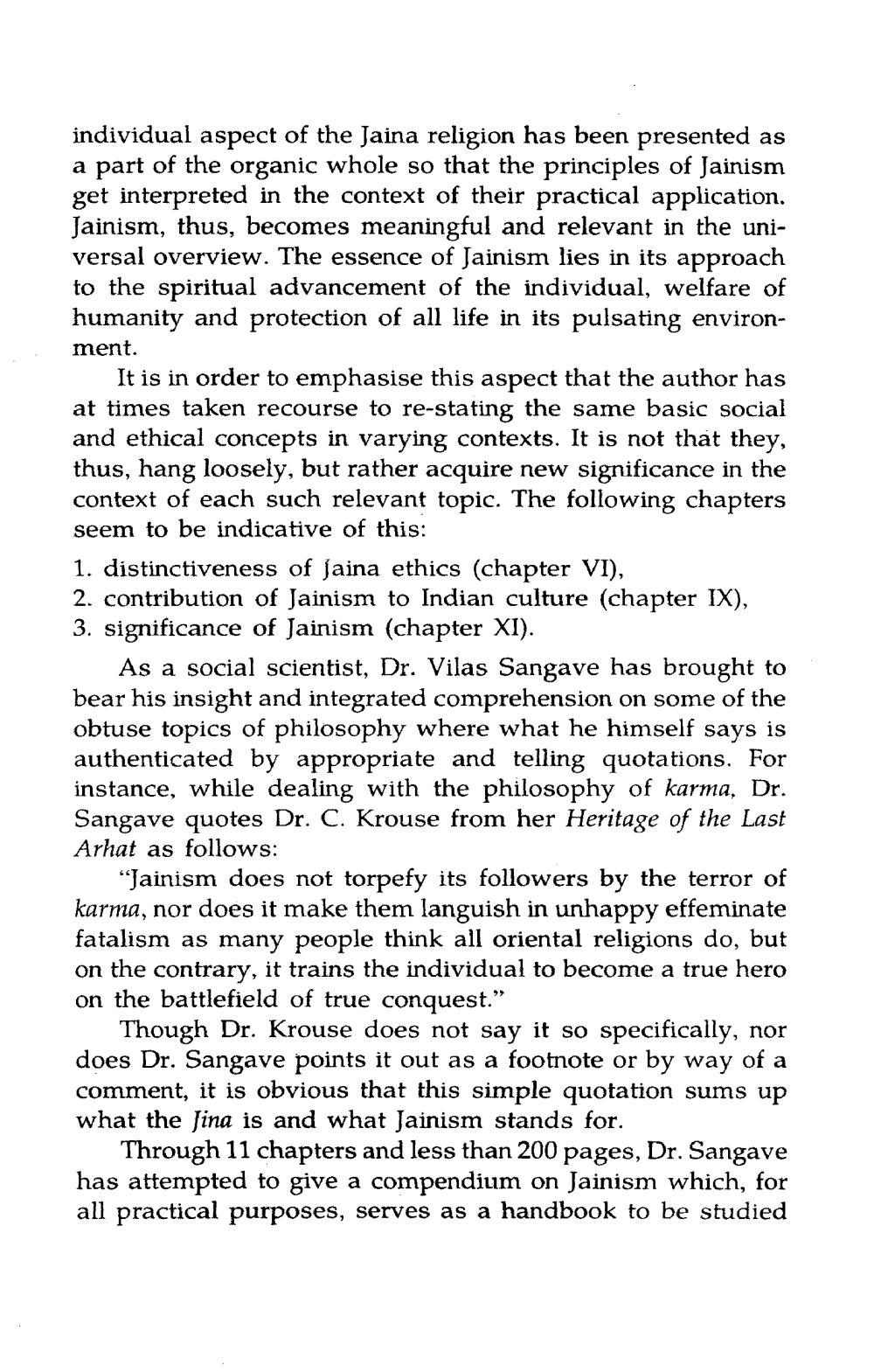________________
individual aspect of the Jaina religion has been presented as a part of the organic whole so that the principles of Jainism get interpreted in the context of their practical application. Jainism, thus, becomes meaningful and relevant in the universal overview. The essence of Jainism lies in its approach to the spiritual advancement of the individual, welfare of humanity and protection of all life in its pulsating environment.
It is in order to emphasise this aspect that the author has at times taken recourse to re-stating the same basic social and ethical concepts in varying contexts. It is not that they, thus, hang loosely, but rather acquire new significance in the context of each such relevant topic. The following chapters seem to be indicative of this: 1. distinctiveness of Jaina ethics (chapter VI), 2. contribution of Jainism to Indian culture (chapter IX), 3. significance of Jainism (chapter XI).
As a social scientist, Dr. Vilas Sangave has brought to bear his insight and integrated comprehension on some of the obtuse topics of philosophy where what he himself says is authenticated by appropriate and telling quotations. For instance, while dealing with the philosophy of karma, Dr. Sangave quotes Dr. C. Krouse from her Heritage of the Last Arhat as follows:
“Jainism does not torpefy its followers by the terror of karma, nor does it make them languish in unhappy effeminate fatalism as many people think all oriental religions do, but on the contrary, it trains the individual to become a true hero on the battlefield of true conquest."
Though Dr. Krouse does not say it so specifically, nor does Dr. Sangave points it out as a footnote or by way of a comment, it is obvious that this simple quotation sums up what the Jina is and what Jainism stands for.
Through 11 chapters and less than 200 pages, Dr. Sangave has attempted to give a compendium on Jainism which, for all practical purposes, serves as a handbook to be studied




